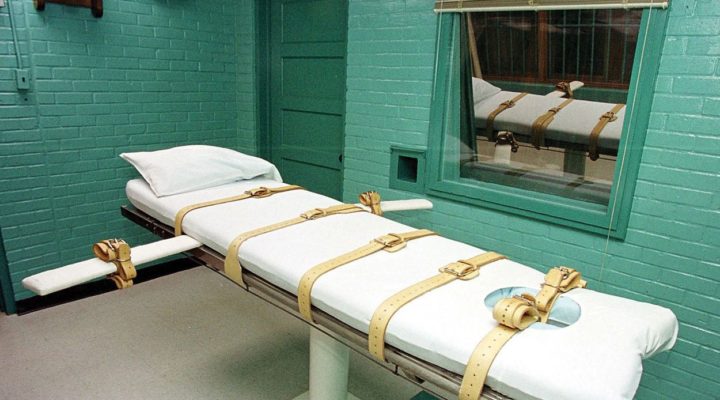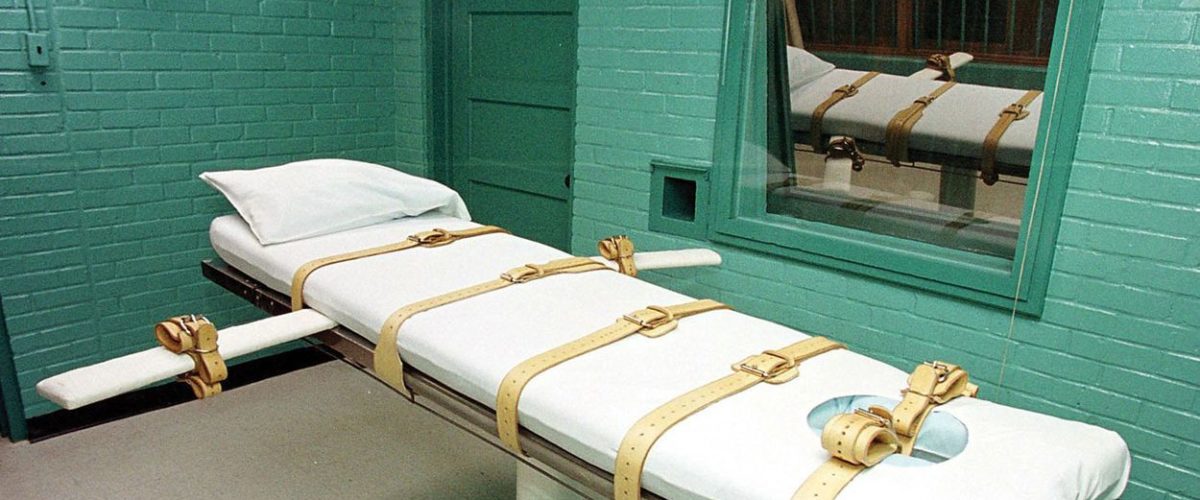The death penalty is dying in America. I cheer its death.
Capital punishment has been abolished in 22 states. Ten of the remaining 28 states have not had an execution in a decade. According to the Death Penalty Information Center, 2020 marked the sixth year in a row with fewer than 30 executions and 50 death sentences. The state of Virginia, which has carried out more executions since 1973 than any state but Texas, is likely to abolish the death penalty this year with bipartisan support.
The federal level has recently bucked this trend, however. After 17 years without a federal execution, President Donald Trump ordered 13 executions in the final six months of his term. 2020 marked the first time in history with more federal executions than all state executions combined. Congress has responded by proposing bills that would abolish the federal death penalty.

Stephen Reeves
It is time we join all other advanced Western democracies in abolishing capital punishment. By continuing the death penalty, we are in league with countries with dubious human rights records like China, Iran, Saudi Arabia and Somalia.
Heinous and brutal crimes generate a visceral reaction — we instinctively want killers to suffer for the suffering they inflicted. It is natural to believe that justice demands it, but we must balance this passion by looking at actual practice. Some common rationale for capital punishment largely evaporates under scrutiny.
The death penalty does not make us safer. In the age of life without parole, we can absolutely remove a dangerous threat to society without killing people.
The death penalty does not deter violent crime. Despite numerous studies, there is no conclusive evidence that the death penalty deters crime. States with the death penalty do not have lower crime or murder rates than those that do, and states have not shown an increase in crime or murder following the abolition of capital punishment. Internationally, murder rates have declined following abolition.
The death penalty is expensive. It is more expensive than life without parole. The Supreme Court has recognized that “death is different” and the finality of the punishment requires opportunity for appeal. Capital trials are more expensive. They are typically longer than other trials and utilize expensive expert testimony. In addition, since so many capital defendants use a court appointed attorney, taxpayers are paying for both the prosecution and the defense. Prosecutors ultimately make the decision to seek the death penalty. The health of the county budget and when a trial falls in their budget cycle can impact the decision.
The death penalty often fails to produce the “closure” that proponents seek. I’m not sure any policy should be based on such an unknowable standard, but because of the lengthy appeals process, many victims’ families report feeling retraumatized by each appeal or on the occasion of a retrial. These protections often delay closure and exacerbate suffering of family members of victims.
The death penalty puts innocent people on death row. Since 1973, at least 174 death row inmates have been exonerated. Many such exonerations are due to advances in DNA technology, but it can be extremely difficult to get courts to acknowledge new evidence. Even after new evidence is found, the convicted can remain on death row for years. For every nine people executed, one person on death row has been exonerated.
“Since 1973, at least 174 death row inmates have been exonerated.”
The death penalty is racist. People of color are disproportionately represented on death row. Blacks make up 13% of the overall population but 42% of the death row population. While the race of the defendant matters, the race of the victim matters even more. According to one famous study in Georgia, murderers of white victims receive a death sentence 4.3 times more frequently than murderers of Black victims. According to the ACLU, white victims account for approximately one-half of all murder victims, yet 80% of all capital cases involve white victims.
Perhaps it should come as no surprise, then, that the states with the most executions are all Southern states. In Virginia, state law used to differentiate capital and non-capital crimes based on the race of the perpetrator and the race of the victim. While those laws are now unconstitutional, in practice little has changed.
The death penalty punishes the poor and uneducated. More than 46% of all death row inmates had less than a high school education. Nearly all of those on death row are poor. Defendants who can afford to hire top-rate attorneys and other experts are more likely to avoid death row. Court-appointed attorneys often result in an inadequate defense and potentially a wrongful conviction. According to Bryan Stevenson of the Equal Justice Initiative, “We have a system of justice that treats you better if you’re rich and guilty than if you’re poor and innocent.”
“Nearly all of those on death row are poor.”
The death penalty punishes the most vulnerable. Many of those condemned to die have experienced mental illness, substance abuse, physical abuse and childhood trauma. In fact, according to the Death Penalty Information Center’s annual report, “Every prisoner executed in 2020 had one or more significant mental or emotional impairments (mental illness, intellectual disability, brain damage or chronic trauma) or was under age 21 at the time of the crime for which he was executed.”
In 2003, the Texas Baptist Christian Life Commission released a report titled “Christians and Capital Punishment.” The comprehensive study looked at theology and Scripture, history and modern practice and concluded “the practice of capital punishment in our nation and state is an affront to biblical justice, both in terms of its impact on the marginalized in society and in terms of simple fairness.”
When presented with a criminal caught in the act of committing a capital crime, Jesus halted the execution. He did so not by questioning the guilt of the perpetrator and whether they deserved to die, but by questioning if the executioners had the moral authority to kill.
“Every argument in favor of the death penalty can be refuted with evidence except for one – pure vengeance.”
I believe every argument in favor of the death penalty can be refuted with evidence except for one – pure vengeance. But is vengeance the goal of our criminal justice system? As Christians, is that what we want the government to do in our name? I believe the death penalty is nothing more than retaliatory violence intended to inflict suffering and pain.
By killing we do not demonstrate that it is wrong to kill, and we cannot arrive at a just outcome through unjust means. Surely vengeance is not worth even one innocent life taken at the hands of the state.
It is well past time to abolish the death penalty. Christians should no longer tinker with the machinery of death and instead help pull the plug.
Stephen Reeves serves as associate coordinator for advocacy with the Cooperative Baptist Fellowship in Decatur, Ga. He earned a law degree from Texas Tech University School of Law and previously worked with both BJC and the Texas Baptist Christian Life Commission.
Related articles:
Effort to end death penalty in Virginia gaining momentum; prayer vigils planned
New effort to repeal federal death penalty is beginning
Opposition to capital punishment reportedly growing among conservatives


